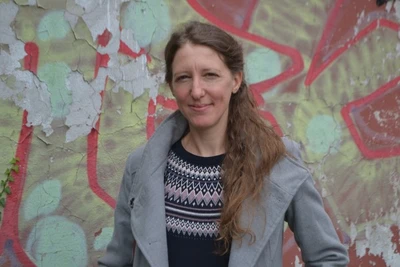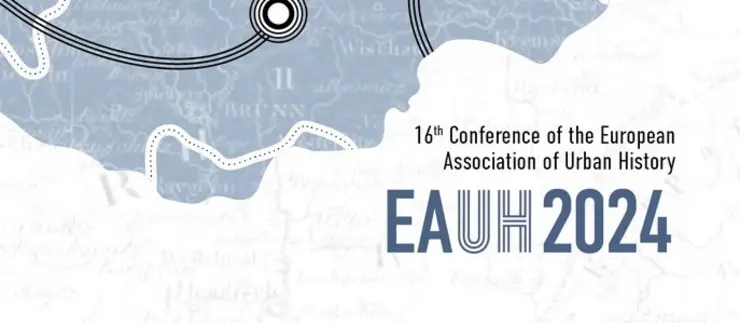Dr. Sara Keller
sara.keller@uni-erfurt.deJunior Fellow (Max Weber Centre for Advanced Cultural and Social Studies)
Office hours
nach Vereinbarung
Visiting address
Max-Weber-Kolleg für kultur- und sozialwissenschaftliche Studien
Campus
Nordhäuser Str. 63
99089 Erfurt
Mailing address
Universität Erfurt
Max-Weber-Kolleg für kultur- und sozialwissenschaftliche Studien
Postfach 90 02 21
99105 Erfurt

Current
Panel organiser at Deutscher Historikertag 2023 in Leipzig: "City Branding: Urbanity and the Construction of City Images in Europe and South Asia", with Susanne Rau & Martin Christ
Panel at 2024 EAUH conference in Ostrava: “Making inner urban boundaries” (Panel M6), together with Mateusz Fafinski
Out now: Architektonische Resonanz. Das Mausoleum des indischen Sufi-Meisters Shah Vajihudin Alvi (Schnell & Steiner 2023)
Personal Information
Curriculum Vitae
Sara Keller (MA Heritage Conservation, PhD. Theory and Praxis in Archaeology at the Sorbonne University, Paris in 2009 and PhD. Islamic Art History and archaeology at the University of Bamberg in 2009) works since 2010 as affiliated researcher at the ‘Orient and Mediterranean’ Research Centre (UMR 8167, France) and since 2019 as a Junior fellow at the Max Weber Centre, Erfurt on the architectural landscape of Western Indian cities.
In order to define complex socio-cultural contexts of the past, she explores a multidisciplinary approach based on the study of historical sources, ethnological methodologies and surveys of historical monuments and urban structures. She specialized in the study of port cities of Gujarat and the East-West intangible transfers they conveyed over millennia.
Research Focus
- Geschichte der westindischen Architektur (mittelalterliche und frühe Moghulzeit).
- Indische Städte: Topographie, Baulandschaft, Entwicklung und Sozialgeographie.
- Wissenstransfer im Indischen Ozean, immaterielle Verbindungen zwischen Mittelmeer und Indischem Ozean.
Research Project
Indian architectural tradition understands the space as a living organism, a body: the body of the mythical Purusha tamed by the Gods on earth. Respecting this cosmology, a city is perceived as a large body with its identity (landscape and population), its organs (outstanding buildings and spaces), its circulation and subtle flows (streets, traffic, spheres of influence). In this context, water, the genesis element per se, naturally places a determining role.
Recent surveys on Indian water architecture prove the importance of waterscape in the Indian cities throughout ages. Yet these exhaustive records lack in analysing the significance of water infrastructures for the city, its social life and its plural power: how does city and water articulate in the historical Indian context? What are the sociological perspectives of the urban waterscape in a highly hierarchised society where water was a matter of inclusion and exclusion? How was the continuity of sacrality managed in challenging urban, topographical and political environments?
This study reveals the close connection of water, urbanity, power and religion.
Selected Publications
- 2019. Knowledge and the Indian Ocean - Intangible Networks of Western India and Beyond, (ed.) Palgrave Series in Indian Ocean World Studies, Palgrave Macmillan, XLI, 266 S.
- 2019: ‘Scholars in Gujarat’s Bazaars –Revisiting L’académie ambulante (‘The Roving Academy’)’, gemeinsames Papier mit Fernando Rosa. In Knowledge and the Indian Ocean - Intangible Networks of Western India and Beyond, (ed.) Palgrave Series in Indian Ocean World Studies, Palgrave Macmillan, pp. 87-112.
- 2017: ‘Les mètres et le vers des monuments muzaffarides. Réflexion sur le rôle et les outils de l’architecte dans le Gujarat du sultanat (Inde, XVe - XVIe siècle)’. Arts Asiatiques, Band 72, pp. 3-16.
- 2016: ‘The first steps of the French adventure in India’, RFIEA n.14, Juni 2016, pp. 8-9.




